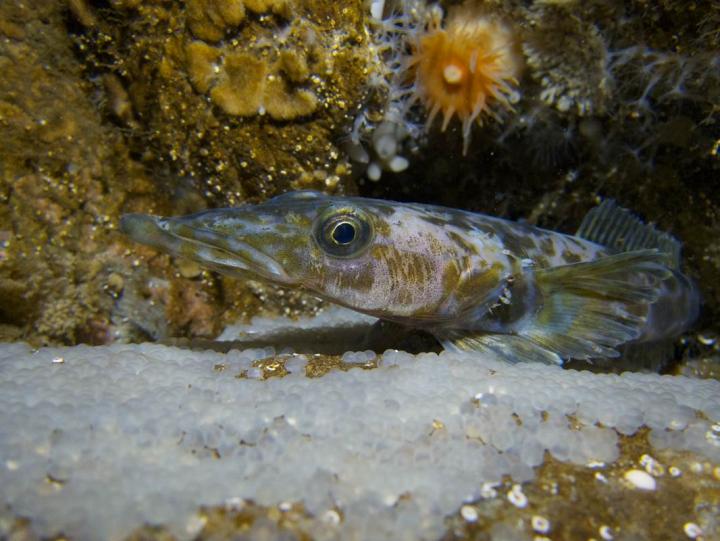

This is an Antarctic dragonfish (Gymnodraco acuticeps).
Credit: Rob Robbins, US Antarctic Program
Scientists at University of California Davis and San Francisco State University have discovered that the combination of elevated levels of carbon dioxide and an increase in ocean water temperature has a significant impact on survival and development of the Antarctic dragonfish (Gymnodraco acuticeps). The research article was published today in the journal Conservation Physiology.
The study, which was the first to investigate the response to warming and increased pCO2 (partial pressure of carbon dioxide) in a developing Antarctic fish, assessed the effects of near-future ocean warming and acidification on early embryos of the naked dragonfish, a shallow benthic spawner exclusive to the circumpolar Antarctic. As the formation of their embryos takes longer than many species (up to ten months), this makes them particularly vulnerable to a change in chemical and physical conditions.
The survival and metabolism of the dragonfish embryo was measured over time in two different temperatures and three pCO2 levels over a three-week period, which allowed the researchers to assess potential vulnerability of developing dragonfish to future ocean scenarios. The results showed that a near-future increase in ocean temperature as well as acidification have the potential to significantly alter the physiology and development of Antarctic fish. One of the article's authors, Assistant Professor Anne Todgham, explained that “temperature will probably be the main driver of change, but increases in pCO2 will also alter embryonic physiology, with responses dependent on water temperature.”
Professor Todgham went on to say: “Dragonfish embryos exhibited a synergistic increase in mortality when elevated temperature was coupled with increased pCO2 over the course of the three week experiment. While we predictably found that temperature increased embryonic development, altered development due to increased pCO2 was unexpected.” These unique findings show that single stressors alone may not be sufficient to predict the effects on early development of fish, as the negative effects of increased pCO2 may only manifest at increased temperatures. They also show that fish may differ from other marine invertebrate embryos in how they respond to pCO2.
The faster development of the embryos in warmer and more acidic waters could be bad news for the dragonfish. Hatching earlier, at the start of the dark winter months when limited food resources are available, has the potential to limit growth during critical periods of development. Furthermore, impacts to survival would reduce numbers of embryos that hatch and could impact dragonfish abundance.















